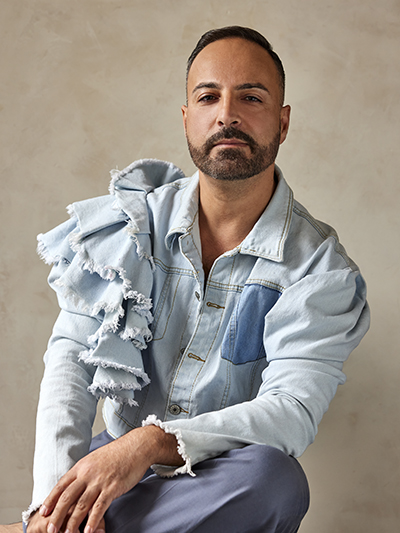Ahmad Qais Munhazim (they/them), a murat Afghan, Muslim and perpetually displaced, is an Assistant Professor of Global Studies at Thomas Jefferson University in Philadelphia. As an interdisciplinary scholar, de/colonial ethnographer, and artist, Munhazim’s work troubles borders of academia, art and activism while exploring everyday experiences of war and displacement in the lives of murat (queer and trans) Afghans. They are currently co-editing a special issue on lived and imagined in/securities through poetry for the Critical Studies on Security journal and a book on queer hope and futurity for Routledge. Munhazim has published articles, poetry and critical autoethnographies in South Asia: Journal of South Asian Studies, QED: A Journal in GLBTQ Worldmaking, Journal of Narrative Politics, Kohl: A Journal for Body and Gender Research, The Oxford Handbook of Global LGBT and Sexual Diversity Politics and Antipode. Munhazim, born and raised in Afghanistan and exiled currently in Philadelphia, holds a Ph.D. in political science from the University of Minnesota. Munhazim is preparing their book manuscript based on a de/colonial ethnography of murat (queer and trans) Afghans in Afghanistan and Afghan diaspora in the United States and Ireland.
Ahmad Qais Munhazim
Wolf Humanities Center Regional Fellow
2023—2024 Forum on Revolution
Ahmad Qais Munhazim
Assistant Professor of Global Studies, Thomas Jefferson University, East Falls
Queer Afghanistan: Everyday Politics from Home to Diasporas
Queer Afghanistan examines everyday revolutionary murat (queer and trans) Afghan subversions that challenge wars, borders, and binaries in public and private spaces, including streets, dance floors, homes, mosques, borders, and exiles. My book project brings to light the little revolutions of queer and trans Afghans amid war through their accounts of resistances, celebrations, friendships, sex, border crossings, joy, love and exile. The two key questions that my research project explores are: 1) How are queer and trans Afghan lives radical revolutions in the face of violence and border regimes? 2) What are some of the ways queer and trans Afghans at home and in the diasporas engage with revolutionary practices of joy, hope and dreaming? Based on years of a de/colonial ethnographic study of queer and trans Afghans in Afghanistan, the United States and Ireland, my project engages with the side of Afghanistan and Afghans that has remained invisible or in the margins, the queer and trans side. Queer Afghanistan situates practices and performances of joy, love, dance, sex and escapes within theorization of revolution while shedding light on a radically beautiful side of Afghanistan and Afghans.



